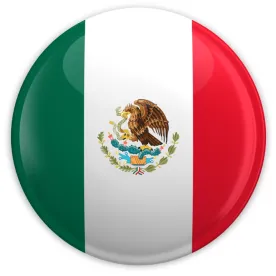On March 10, 2021, an Ordinary Session of the Chamber of Deputies (the “Chamber”) was held where the draft decree for the Federal Law for the Regulation of Cannabis was approved (with 315 votes in favor, 128 against, and 23 abstentions). The decree amends and adds various provisions to the General Health Law and the Federal Criminal Code.
The bill was then submitted to the Senate as the reviewing chamber. Once approved, it will be published in the Federal Official Gazette to become effective. The reviewing chamber has until April 30, 2021, to make a decision.
Federal Law for the Regulation of Cannabis
This law does not regulate the medicinal, palliative, pharmaceutical, scientific or cosmetic uses of cannabis, since it expressly states that for these cases the provisions in the General Health Law will apply. GT Alert -Mexico’s General Health Law Regulations for the Production, Investigation, and Medicinal Use of Cannabis and Derivatives, published Jan. 22, 2021, includes a summary of the regulations for these uses.
The National Commission against Addictions is the competent authority on this issue.
Self-consumption is defined as the production of cannabis for recreational purposes, which must be carried out at home for personal use, or in cannabis associations for its members’ use. Cannabis produced for self-consumption may only be used by those who produce it.
To determine the origin of the product through its final use, changes to the requirements have been introduced that adopt criteria used in seed certification and traceability rules currently applied to other agricultural products, and have a complete mechanism that helps to identify the entire supply chain of these products.
The law specifies three types of production:
-
Commercialization and sale for recreational purposes.
-
For research purposes.
-
Hemp for industrial purposes.
Recreational use is defined as the use of psychoactive cannabis and its derivatives for recreational purposes.
Only persons of 18 years or older may consume psychoactive cannabis. Its use is prohibited to minors under 18.
The sale of psychoactive cannabis and its derivatives for recreational use will be exclusively within the national territory, in establishments authorized by the Federal Commission for the Protection against Sanitary Risks (“COFEPRIS”).
Although the bill is not clear on this point, it is assumed that any person over 18 may cultivate and possess in their primary place of residence up to six cannabis plants exclusively for personal consumption for recreational purposes, without a COFEPRIS permit or license. The bill establishes that such persons do not require a permit or license for cultivation at their residence, as they may carry out such activities prior to the granting of the permit.
The person who produces or distributes cannabis and its derivatives for recreational purposes will require a license.
Laboratories, research centers, universities and public or private higher education institutions may produce cannabis for research and technological development purposes, as long as they have the required authorization issued by COFEPRIS.
The type of licenses remain as follows, and may be granted with a minimum term of one year and a maximum term of five years:
-
Integral.
-
For production purposes only.
-
For distribution purposes only.
-
For sale to the final user purposes only.
-
For purposes of production or marketing of cannabis products.
-
For research purposes.
COFEPRIS may grant more than one license or permit, as long as the requestor complies with the requirements related to indigenous people and communities, peasants or ejidatarias, ejidos and agrarian communities, communities in marginalized situations or that, due to their conditions, characteristics, or because they have been affected by the prohibitive system, should have priority attention or are otherwise vulnerable.
General Health Law
The bill makes the following changes to the General Health Law:
-
Article 474: adds a second paragraph to incorporate the upper limit rule for psychoactive cannabis; the upper limit is the equivalent of 200 times that which is permitted in the table, that is, 5.6 kilograms, to delimit common and federal crimes.
-
Article 475 bis: to regulate cannabis. Proposal to sanction its commercialization, without authorization, with a prison term of one to three years when the amount is between 200 grams to 5.6 kg. When the amount exceeds 5.6 kg, the sanction will be five to 15 years in prison.
-
Article 476 bis: to regulate cannabis. Proposal to sanction the possession of cannabis for commercialization purposes, with a prison term of three to seven years, when the amount involved is greater than 5.6 kg and less than 14 kg.
-
Article 477 bis: to regulate cannabis. Proposal to sanction the simple possession of cannabis with a prison term of 10 months to three years, when the amount involved is greater than 5.6 kg and less than 14 kg.
-
Article 236: to incorporate a second paragraph to consider the unauthorized commercialization of psychoactive cannabis.
Federal Criminal Code
The bill makes the following changes to the Federal Criminal Code:
-
Article 193: to include a definition of psychoactive cannabis.
-
A proposal to exclude from article 198 the reference to the cultivation, sowing or harvesting of marijuana plants, to regulate it in article 198 bis.
-
Criminalize in article 198 bis the following conduct:
-
Production, transportation, trafficking, marketing and supply of psychoactive cannabis in quantities greater than 5.6 kg, without a permit or license.
-
Possessing psychoactive cannabis for marketing purposes, without a permit or license, in quantities above 5.6 kg and less than 14 kg.
-
The introduction or extraction of psychoactive cannabis from the country, without a permit or a license.
-
Administration of psychoactive cannabis without the consent of the victim, or without a medical prescription in the case of minors or incapable persons.
-
The supply, commercialization or inducing the consumption of psychoactive cannabis to minors.
-
Advertising for the consumption of psychoactive cannabis.
-
Sowing, cultivating or harvesting cannabis plants without a permit or a license.
-
Providing economic resources, financing, supervising or encouraging the execution of the aforementioned conduct to commit the crimes set forth in the article.
Article 201 remains as-is, with an option to modify article 201 bis to include the crime of corruption of minors, hiring children and adolescents for activities related to the various stages of cannabis production.
Transitory provisions.
The bill introduces the following transitory provisions:
-
Removes references to the creation of the Mexican Institute for the Regulation of Cannabis.
-
Establishes a special provision for the production, commercialization and sale of products derived from psychoactive cannabis to be used in electronic delivery devices for the use of any substance that may be inhaled.
-
Temporarily prohibits the production and sale of edible cannabis products while scientific studies are being generated to support their use.
* This GT Alert is limited to non-U.S. matters and law.
* Special thanks to Maria Fernanda Vazquez for her assistance with this GT Alert.



 />i
/>i

